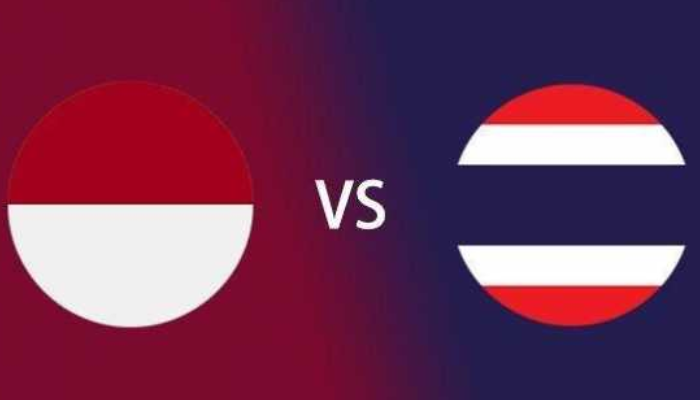Indonesia vs Thailand is an exploration into the comparison between two Southeast Asian nations. From their culture and cuisine to their language and natural attractions, this in-depth analysis will reveal the differences and similarities between these two beautiful countries.
Overview of English Proficiency in Indonesia
English proficiency is a measure of how well a person can communicate in the English language. In Indonesia, English proficiency is relatively low compared to other countries in Southeast Asia. This is due to the fact that English is not the official language of Indonesia, and the language is not widely taught in schools. Despite this, English proficiency is increasing in the country, especially among the younger generations.In recent years, the Indonesian government has taken steps to improve the English proficiency of its citizens.
The government has introduced an English language curriculum in schools, and has provided incentives for teachers to become certified in English. This has resulted in a significant increase in the number of certified English teachers in the country.The government has also introduced English language programs for university students, and has held English-speaking competitions to encourage students to learn and use the language. As a result, English is becoming more widely spoken in Indonesia.
Overview of English Proficiency in Thailand
Indonesia and Thailand are two countries located in the Southeast Asian region. Both countries have a rich culture and history, and both of these nations are known for their unique cuisines and hospitality. English is the official language in both countries, but there are certain differences in terms of English proficiency between the two.
In terms of English proficiency, Thailand has a much higher rate of English proficiency than Indonesia. According to a recent study, Thailand has an overall English Proficiency Index (EPI) score of 60.3, which is higher than the world average. In comparison, Indonesia has an EPI score of 52.9, which is lower than the world average.
Comparison of English Proficiency in Indonesia and Thailand
English proficiency is an important factor to consider when deciding which country to visit, study in, or work in. Indonesia and Thailand are two Southeast Asian countries that are often compared to each other, and this comparison extends to English proficiency. Both countries have high populations and are popular tourist destinations, so it’s important to understand how they compare in terms of English proficiency.
In Indonesia, English is a required subject in most schools and universities, and it is also the language of instruction in many higher level courses. This means that a significant portion of the population is exposed to English from an early age, and as a result, many Indonesians are proficient or near-proficient in the language. However, a lack of formal instruction and a lack of formal testing means that there is no way to accurately measure the overall level of English proficiency in the country.
Impact of English Proficiency on Education and Career Opportunities
When it comes to the impact of English proficiency on education and career opportunities, Indonesia and Thailand are two countries that have had very different experiences. Both countries have a long history of English language education, with Indonesia first introducing English as a foreign language in the late 19th century, and Thailand beginning English language instruction in the early 20th century. However, while Indonesia has seen increasing English proficiency over the past few decades, Thailand has experienced a slight decline in proficiency rates.
The difference in English proficiency between Indonesia and Thailand is largely attributed to the different education policies pursued by both countries. In Indonesia, English is viewed as a key tool for social and economic development, and the government has made a concerted effort to promote English language proficiency. The government has invested heavily in English language instruction, with English being taught at all levels of the education system. Additionally, the government has also provided incentives and scholarships for students who demonstrate a high level of English proficiency. This has resulted in higher levels of English proficiency among Indonesian students, with nearly 70% of Indonesians able to speak the language.
Strategies to Improve English Proficiency in Indonesia
Indonesia and Thailand have been compared for their proficiency in English. Thailand has been cited as having a higher proficiency than Indonesia in English due to the fact that English is used widely in the country as a language of instruction and communication. Thailand also has an established system of English language testing and proficiency tests. On the other hand, Indonesia has been lagging behind in terms of English proficiency despite its large population and numerous potential English learners.
The need to improve English proficiency in Indonesia is becoming increasingly urgent. With the rise of the global economy, English has become a vital language for international business, travel, and communication. As such, the ability to effectively communicate in English is becoming a necessary skill for individuals and organizations in Indonesia.
Strategies to Improve English Proficiency in Thailand
Indonesia and Thailand have long been known as two of the biggest and most influential countries in Southeast Asia. Both countries have experienced tremendous growth in recent years, particularly in the area of English proficiency. Both nations have put a great deal of effort into developing their English language skills, but Thailand has seen the most success in this regard.
In terms of English proficiency, Thailand has generally outpaced Indonesia. This is largely due to the fact that Thailand has a more comprehensive and consistent approach to English education. For example, the Thai Ministry of Education has implemented a series of English language reforms over the past few years. These reforms have included the establishment of English language centers, the introduction of English language courses at all levels of education, and the use of English tests to assess student proficiency.
Conclusion
When it comes to Indonesia vs Thailand, it is clear that both countries offer a unique and fascinating experience. Indonesia is full of beautiful beaches, stunning jungles, and interesting cities, while Thailand has its own unique culture and a range of activities that make it an attractive destination. However, both countries have their own set of advantages and disadvantages, so it is up to the traveler to decide which country best fits their needs. Indonesia is a great destination for those who want to explore the outdoors and experience the rich culture and diversity of the country. Thailand, on the other hand, is great for those who want to experience a truly unique culture and have a variety of activities to do. Ultimately, the decision lies with the traveler, but either way, both Indonesia and Thailand can provide a wonderful experience.

















Comments